RSV is most serious in newborns
Almost all children will get RSV (respiratory syncytial virus) at least once before they turn 2.
However, when very young babies—especially preemies who are born before their lungs have fully developed—catch RSV, the risk of needing to be cared for in the hospital is much higher.
What it might look like if your baby has RSV
When it comes to RSV, there is no overreaction. If your baby is showing signs and symptoms of severe RSV infection, you should seek immediate medical attention.
In young babies, RSV can have a severe impact and might look like:
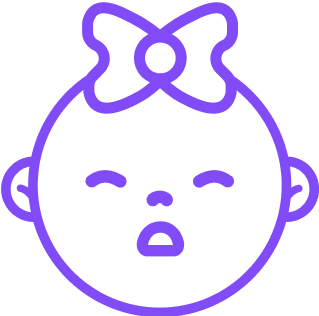
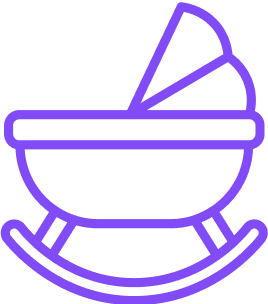
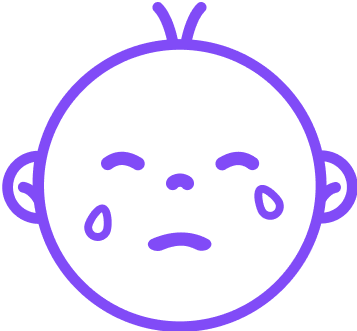
In older children, RSV signs and symptoms often mimic those of the common cold or the flu, including:
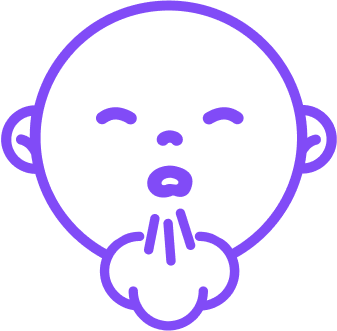

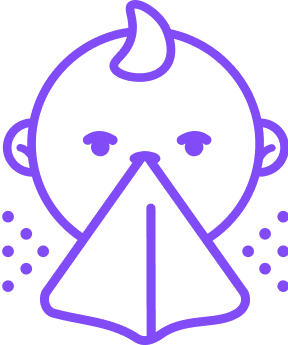
What to do if you think your baby has RSV
As long as your baby is breathing comfortably and they are drinking and wetting diapers as usual, you can probably care for them at home. In general, most children start to feel better within 1–2 weeks.
Here are some ways you can help your baby feel better:
- Manage fever and pain: Talk to your doctor about age-appropriate ways to manage fever and pain in your baby.
- Relieve congestion: Use saline nasal drops/spray and or a nasal aspirator to clear mucus.
- Hydrate: It’s important to keep your baby from becoming dehydrated.
- Bathing: A lukewarm bath or washcloth can help your baby feel better without raising their body temperature. Avoid cold baths, as shivering can raise their body temperature.
- Clothing: Dress your baby in light clothing to help their body cool down. Add layers if they start shivering and then remove them once the shivering stops.
RSV is a virus. Giving your baby antibiotics (which fight bacteria) will not help them get better more quickly.
When you should see a doctor
RSV is the most common cause of pneumonia and bronchiolitis in babies. These can be serious conditions, and your baby may need to see their doctor or go to the emergency room.
When it comes to RSV, there is no overreacting.
Go to the emergency room if your baby:
- Has trouble breathing (working hard to breathe, breathing faster than normal), pale skin or lips that look white or blue, asthma, or wheezing.
- Is younger than 3 months and also has any of these symptoms:
- Fever or is very sleepy/difficult to wake up
- Repeated vomiting and unable to keep liquids down for 8 hours or more
- Vomiting or diarrhea containing large amounts of blood
- Signs of dehydration (dry mouth, no wet diapers for 8 hours or more)


How to help protect your baby from RSV
RSV season in Canada generally begins in the fall and lasts until early spring. RSV is generally contagious for at least 3–8 days, but people with weakened immune systems can spread the disease for up to 4 weeks.
Helping to protect your baby from RSV means taking steps toward protection for you and your family members.
Here are some precautions you can take:







